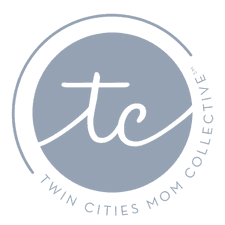 Move over March Madness… March is Colon Cancer Awareness Month. Blue ribbons and cute little memes about butts will flood social media. The least sexiest of cancers, but the second deadliest. And yet it is preventable by early screening.
Move over March Madness… March is Colon Cancer Awareness Month. Blue ribbons and cute little memes about butts will flood social media. The least sexiest of cancers, but the second deadliest. And yet it is preventable by early screening.
I took a crash course in Colon Cancer 101 from December 1, 2015 – November 18, 2016. In those eleven months, I self-taught myself everything I could and became an expert on my late husband’s specific type of colon cancer, treatments, and side effects. Absorbing all the information my brain and notebook could hold from every possible outlet. Internet, books, oncologists, caregiver support groups, advocacy groups, and other patients my husband Adam met filled my resource bank.
A common theme emerged: colon cancer wasn’t an “old man’s disease.” I was meeting dozens of other caregivers whose partners were also diagnosed with late stage, metastatic colon cancer. Like us, they were in their late 20s and 30s. Many with young children at home, robbed of parenthood because of the effects of cancer treatments. Some had family history of this disease, but many others did not have any genetic connection to colon cancer. Men and women who ate a healthy diet, exercised, and had the privilege of living a middle class lifestyle were being blindsided with late stage colon cancer.
Read: incurable.
The following are many of the common signs and symptoms that are reported in young onset colon cancer.

Fatigue
My husband turned 34 years old the day before we learned there was a large tumor in his colon. He worked a full time job and was a part time beat writer for local professional sports teams. We had a two year old son and were in the middle of moving. When he started to complain about being tired all the time, it was about nine months pre-diagnosis. It seemed completely logical why he was tired due to our busy life.
Shortness of Breath
The weeks leading up to diagnosis, he was short of breath going up and down the stairs. A hill that never bothered him years before while hunting, wore him out and caused him to huff and puff. On his last birthday, he covered one of his favorite gigs, a college men’s basketball game. He got winded on the stairs at the arena where he was working. He knew something was wrong that night when he came home and told me.
Changes in Appetite, Fullness and Bloating
This was very subtle. I remember his excuse was usually he had a big lunch at a work meeting, and the supper I made was barely touched. He often felt full, bloated, and not hungry in the evening. It made sense, he was well fed at work and the candy dish was hard to resist by the front desk.
Abdominal Discomfort or Pain
This accompanied feeling bloated and full. Abdominal pain that radiated into his right shoulder was the symptom which finally led him to the doctor. He had a hard time sleeping on his right side because it put pressure on the tumor growing.
Unexplained weight loss
While my husband didn’t lose weight as a symptom, many others do. Looking back at photographs of him during this time, he looked bloated and puffy. He also looked grey, washed out of his usual red cheek color. Some lose weight for a variety of reasons: appetite changes from fullness, nausea, feeling bloated, and the overall toll cancer cells have on the body’s immune system to try and fight off the tumors.
Changes in Stool and Bleeding
Nobody likes to talk about their poop. Remember I said this is the least sexiest of cancers? But it is worth knowing that changes in your bowel, either more or less frequency, the shape of it and color are incredibly important to be aware of.
Some will notice blood in their stool or on their toilet paper as a symptom. My husband did not. Where his tumor was located meant the blood was darkening his stool. The size of his tumor also changed the consistency to more like diarrhea and increased the frequency of his bathroom visits. When he told the doctors about all these changes, we had a sad “ah-ha” moment. We realized how many months had gone by when he was too full to eat supper. When he did eat, he ran to the bathroom almost always after eating.
The bleeding was causing restless leg syndrome from anemia, which also meant fatigue and sleepless nights. One symptom led into another. They took blood for basic labs at his initial clinic visit. They called and told him to go straight to the emergency room. He had extremely low hemoglobin levels and needed a transfusion. This discovery led us to the emergency room, which led to an admission on the oncology floor.
Know Your Body and Be Your Own Best Advocate
The symptoms he was reporting seemed like they were due to our busy lifestyle at the time. I suggested he start exercising more, eating better, going to bed earlier. It was winter, so the bike rides and outdoor runs were on pause. He used to go to a gym during lunch or after work; but he had changed jobs the previous year and with a baby, never got into that new routine. Now we were busy with a move, and there was still a 50 hour plus work week with some very late nights, and a lot of high calorie, catered meals during his workday.
I remember suggesting he see the doctor, but he felt the doctor would say, “work less, exercise more, and lose some weight.” I didn’t push it, he wasn’t wrong. We had a busy home life, and he had a busy work life that he loved.
Moving Forward
Colonoscopies are now recommended by the American Cancer Society starting at age 45. For my sons, they will begin screenings at age 24, ten years younger than when their father was diagnosed. A reliable and wonderful resource is the Colorectal Cancer Alliance.
There are also a few lifestyle changes we made based on our own research, conversations with oncologists, specialists, and other patients and caregivers. This list empowers myself and two sons against this deadly disease, because it is highly preventable if caught early.
- Annual Physical Exams (including annual pap smears and full labs)
- Holistic approach (therapist, nurse psychiatrist, OB-GYN, family physician) to prescribe appropriate vitamins, supplements, and medications to monitor physical and mental health, including annual blood work
- Regular exercise 3 times a week, and overall being active
- Limiting red meat consumption to twice weekly
- Emphasis on fruits, vegetables, and nuts in our diet
- Using the Clean 15 and Dirty Dozen as a guide for grocery shopping
- Meditation to help anxiety, sleep patterns, and being in tune to my body
- Talk therapy to process emotions
- Reading and writing as a form of self-care and self-discovery
- Always having one activity on the calendar for just me to look forward to (massage, haircut, dinner with friends, traveling)
The day my husband and I learned treatment was no longer an option for him and we were moving to hospice, we agreed “no regrets.” We really tried to live life by the 80/20 rule. Being responsible, eating well, being active together 80% of the time.
The other 20% we enjoyed the best dining and made new recipes. We ordered the dessert. I’ll always remember he ate the chocolate cupcake at my niece’s birthday party mid-way through his diagnosis. He had cut out almost all sugar as a way to fight the cancer. But that treat on day four into his chemotherapy treatment week, he swooned over and enjoyed every bite.
My Best Advice for Cancer Awareness and Prevention
Know your family history. Be aware of signs and symptoms your body gives you to raise flags something is off. Most importantly, be in tune with your own body and be your own advocate. If you feel your body is telling you something is off, don’t dismiss it and push your doctor to help you find answers.



